

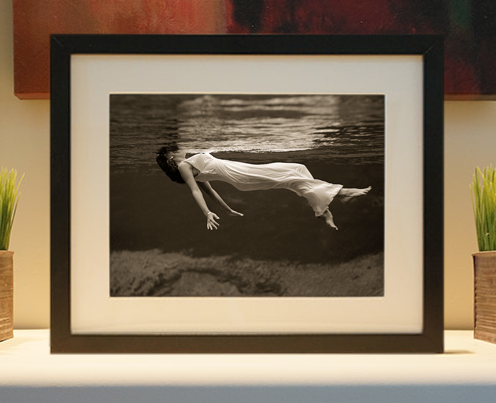
Framed or unframed, desk size to sofa size, printed by us in Arizona and Alabama since 2007. Explore now.
Shorpy is funded by you. Patreon contributors get an ad-free experience.
Learn more.

- Roll your own
- Rugged and real!
- A Charles Purcell - Mama Cass Connection
- Uncle SAAM
- Obfuscation
- One Chocolate Soldier rode away
- Victor Marquis de la Roche
- The Little House Across Way ...
- Vanderbilt Gates
- Vanderbilt Mansion
- You can still see that gate
- Withering heights for me
- So Jim,
- Top Heavy
- Re: Can't Place It.
- Bus ID
- Since you mention it
- The White Pages ?
- Moonlight Tower
- 1907?
- Fire(men) and Water
- Can't Place It
- Can anyone
- Wings
- Where's Claudette and Clark?
- Overbuilt Rolodex
- One song
- Give Me Wings Please!
- PRR
- Pinball Wizards
Printporium
Crate & Barrel: 1936
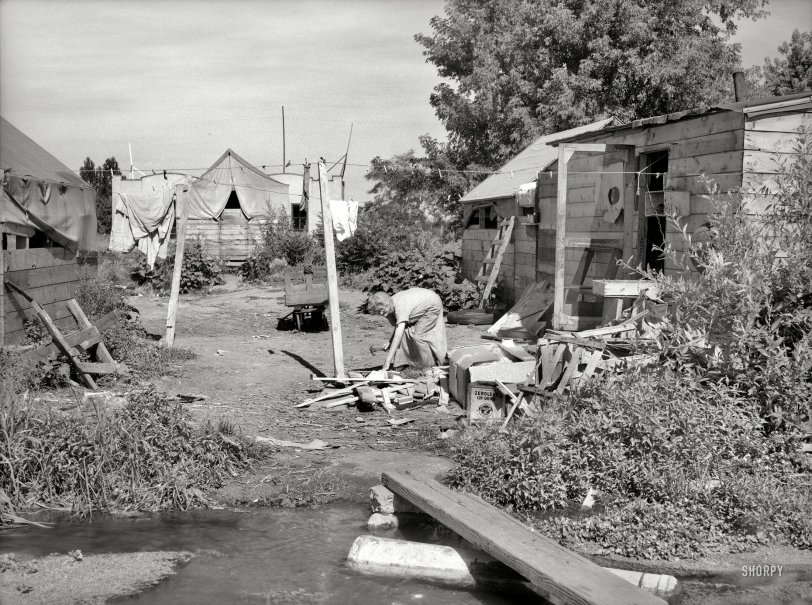
July 1936. "Migratory fruit pickers' camp in Yakima, Washington." Dust Bowl refugee from the Midwest hammering away at packing crate scraps outside her tent. Medium-format negative by Arthur Rothstein. View full size.
Zerolene
The sad part of this picture is that the Zerolene cup grease can would bring more money on Ebay today than what her entire belongings were worth back then.
Hardscrabble doesn't come close
I'm not sure what word describes this woesome setting but whatever it is, it's at least three rungs below "hardscrabble". Note the cylinder under the bridge, most probably a discarded 30 or so gallon galvanized hot water tank pressed into footbridge support duty. The Zerolene box contained a can of Standard Oil (think Esso and Exxon) lubricant used in grease guns to service car and truck suspension joints and other bits. Zerolene had been around almost as long as the motor car itself; here's an ad from the August 7, 1914 (98 years ago today) issue of the Bandon Recorder, in Oregon.
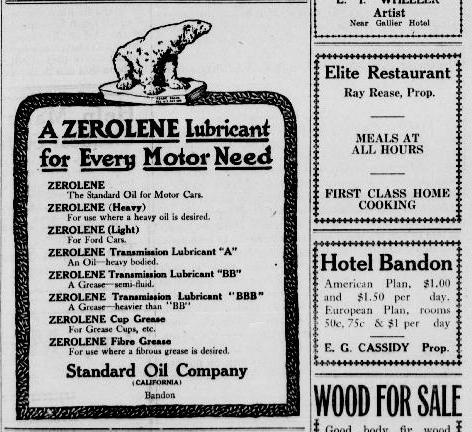
Journey to a new life
Thanks so much for posting these pictures of the migration from North Dakota and Montana to the Northwest. I wish my parents were still alive to see these photos, as this was their journey, and they may have even known some of these fellow travelers.
My parents were the children of farmers in Montana. My mother's family lost their farm when the bank that held the mortgage failed. My father's family fared a little better, but with a young wife and a child to support, my father thought that things might be better for them further west. Certainly the weather was milder - the year they left Montana had a record-setting freezing winter.
They picked apples and peaches in Yakima, where some of my relatives still live. After the harvest, they moved south to Oregon, where my father pulled carrots and my mother found work as a housekeeper. Years later, after my father became a successful business owner, he would tell us stories of living in migrant camps, and how grateful he was for the New Deal.
Makes me appreciate what I've got
Poor soul has lost her farm, lost her teeth, lost probably everything which made life normal, and she's still going on. I'm so moved when I see the camps with refugees from the dust bowl. Makes me think "Normal" is such an ephemeral state.
Excelsior
Grandma has herself a box of excelsior there! Young'uns today would have no idea what folks used to ship their fragile goods in before Styrofoam peanuts were invented 40 years ago. This was it, fine, curled wood shavings. I haven't seen any in years.
I'm sure it's going to be used to kindle a fire in the lady's wood burning stove as soon as she gets the wood cut up (note the flue in the cabin's roof). The crate lumber will be perfect fuel for the old stove; it lights easily, gets hot fast and then burns out shortly after dinner was cooked and water was heated for the dishes.
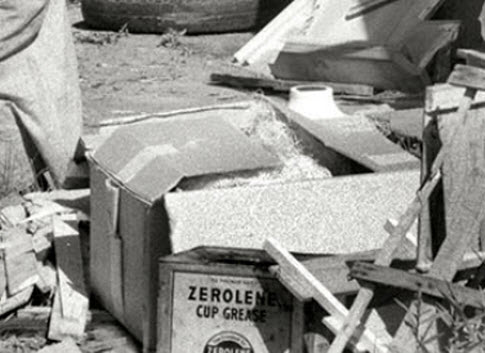





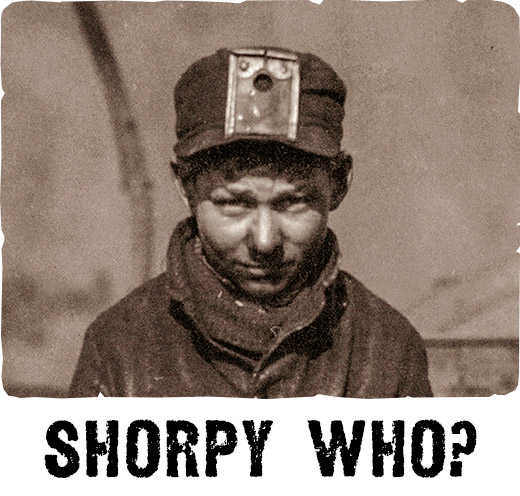
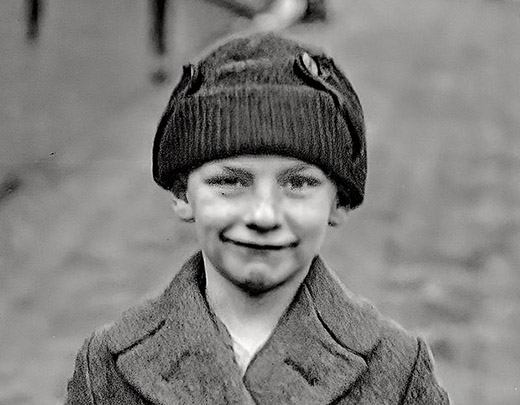
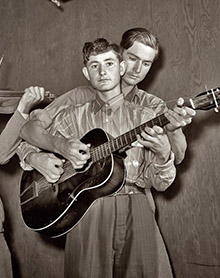
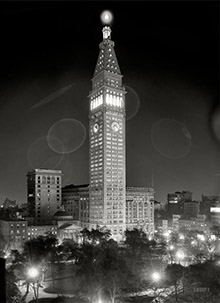
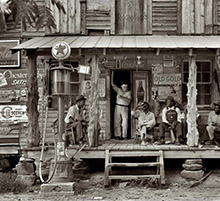
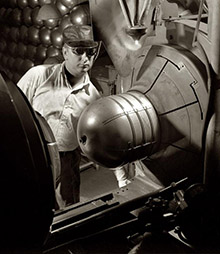
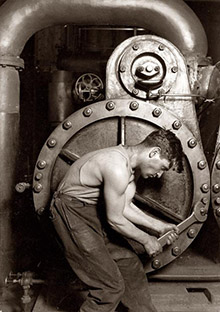

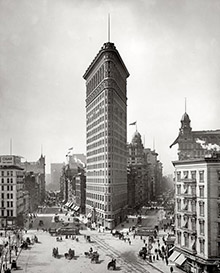



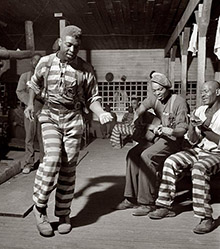

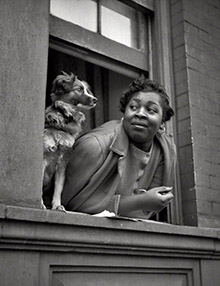

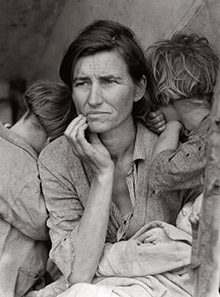

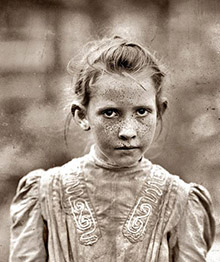
On Shorpy:
Today’s Top 5